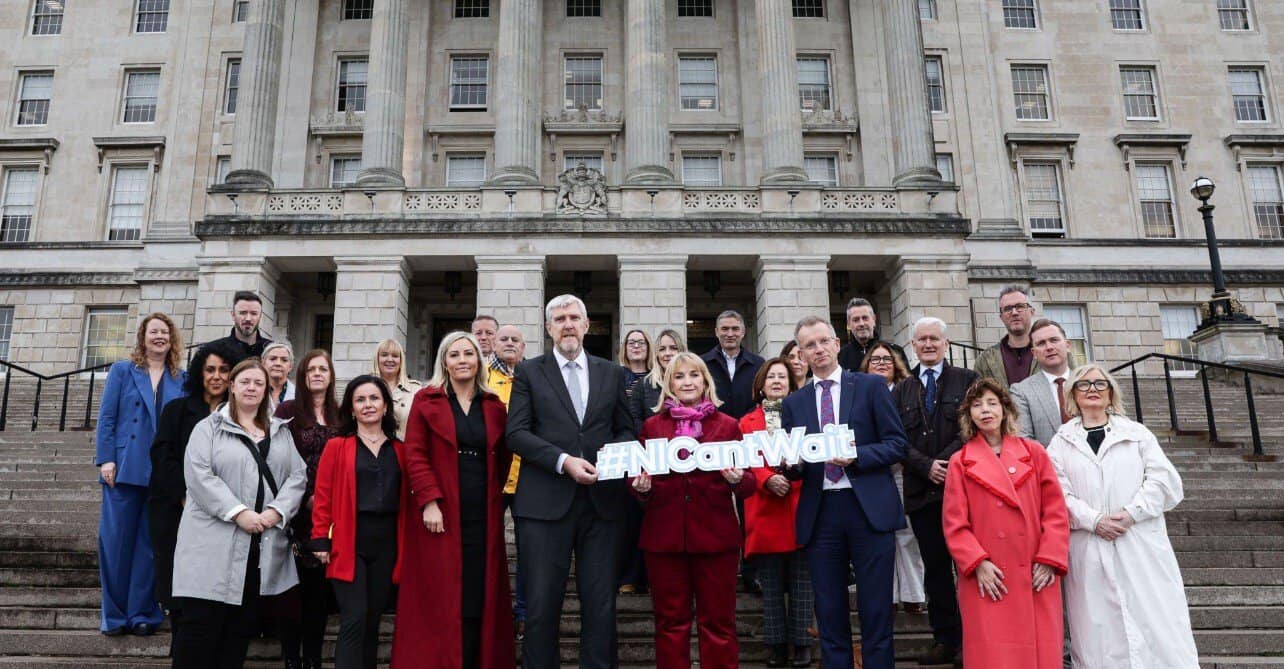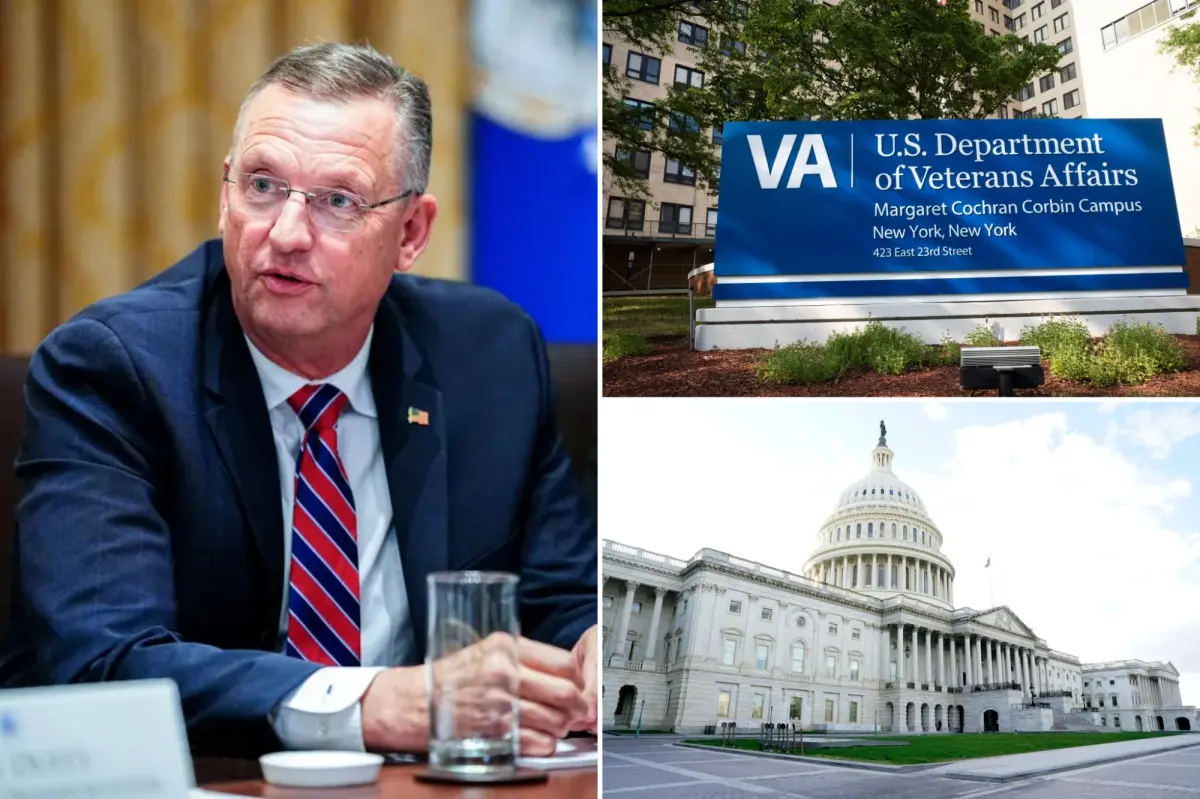Copyright sluggerotoole

Celine McStravick is the CEO of NICVA This week’s Northern Ireland Affairs Committee hearing laid bare a troubling truth: the voluntary and community sector in Northern Ireland is teetering on the edge of a funding cliff, and Westminster’s silence is deafening. The current UK Shared Prosperity Fund (UKSPF) has been a lifeline for tackling economic inactivity in Northern Ireland—home to the highest rate of economic inactivity in the UK. Over 24,000 people benefitted from the scheme that was led by 15 VCS led organisations across 2023-2025 including those with disabilities, women, lone parents, carers, and young people. The scheme also provided 650 jobs. The UKSPF successor is called the Local Growth Fund and is due to begin Spring 2026. However, with five months to go, groups in NI still don’t know how the scheme will work, how much funding will be available, what are the timeframes and what are the delivery models. With no clarity on what comes next, organisations are preparing to issue redundancy notices to staff and service users. Boards are paralysed by indecision, and the clock is ticking. The proposed 70%-30% capital to revenue split is particularly alarming. It may suit other regions, but it’s ill-fitting for Northern Ireland’s needs. During our session with the NI Affairs Select Committee this week David Smith MP bluntly put it, that this process “looks like madness,” especially for smaller charities whose work depends on flexible, revenue-based support. Transplanting budget structures from other departments without co-design or consultation is not just lazy—it’s negligent. Without these details VCS organisations can’t plan. They will be forced to begin winding down services and initiating redundancy proceedings as early as this month to meet their legal responsibilities as employers. As CEO of Action Mental Health, David Babington told Westminster MPs this week the sector is in the same funding position as it was last year– with no news and always left to the last minute. On the ground we’ve been raising the alarm for many months. NICVA’s economic coalition #NICan’tWait campaign has secured cross party political support, demonstrated recently during a Sinn Fein motion debated in the NI Assembly two weeks ago alongside support from the Finance Minister. We have also seen questions raised from Westminster MPs Gavin Robinson and Robin Swann as well as Alliance MLAs who met with us or attended our campaign events. The urgency of the situation was again raised by SDLP MP Claire Hanna who wrote to the UK Government asking them to work with the NI Executive to expedite and resolve this issue. And this is where it feels there is a democratic deficit. Despite all of this political support from local representatives, the ability to influence the Ministry of Housing, Communities and Local Government at Westminster feels incredibly hard. A recent NIO statement (24 October) said that “more information on the development of the Local Growth Fund in Northern Ireland and engagement plans will be set out soon.” This is simply not good enough – not when jobs and futures are on the line. The sector’s impact is undeniable. Between 2023-2025 nearly 24,000 (23,942) people were supported by UKSPF-funded programmes. 650 skilled jobs are now at risk across 15 VCS projects, and 64 organisations are facing major future operational worries. These are not abstract numbers—they represent lives changed, communities strengthened, and futures reclaimed. Groups that we represent are tackling the legacy of conflict, supporting young people, and helping those with mental and physical disabilities into employment. We are doing the work government cannot do alone. As Dr Martin McMullan Chief Executive at Youth Action NI told NI Affairs Committee this week, there is a specific post conflict aspect to youth work in NI where legacy impacts every aspect of society, particularly in interface communities. Yet despite this success, the sector faces a familiar and deeply frustrating pattern: uncertainty, delay, and disregard. With colleagues this week in London we emphasised that our sector is not asking for handouts; we are asking for partnership, for recognition, and for a funding model that reflects the reality on the ground. And yet, the Secretary of State for Northern Ireland has not met with us. Letters have gone unanswered. Promises of clarity have dissolved into vague assurances and bureaucratic delay. It is bemusing, frustrating, and frankly insulting. The voluntary sector is values-driven, resilient, and deeply embedded in the communities it serves. But as Alliance MP Sorcha Eastwood rightly asked, would any other sector be treated this way? As someone who has worked in the VCS for many years I can firmly say – no. Our sector is taken for granted precisely because it always shows up, even when government does not. This is a topic we will be addressing with Darren McGarvey at our AGM 5 December. Declan will invite the audience to rethink the relationship between government, civil society, and the public – proposing a more relational model where communities are not merely service users or stopgaps, but genuine partners in shaping better outcomes. The immediate questions demand answers now. There is still time to act. Westminster must urgently provide clarity on the Local Growth Fund’s future, reconsider the capital-revenue split, and commit to a transition fund beyond March 2026. Co-design must be more than a buzzword—it must be the foundation of a sustainable funding model. Northern Ireland’s voluntary sector is not just a safety net—it is a cornerstone of progress. Ignoring its value is not just short-sighted; it’s a betrayal of the communities it serves. The cliff edge is approaching. Westminster must step up before it’s too late.



